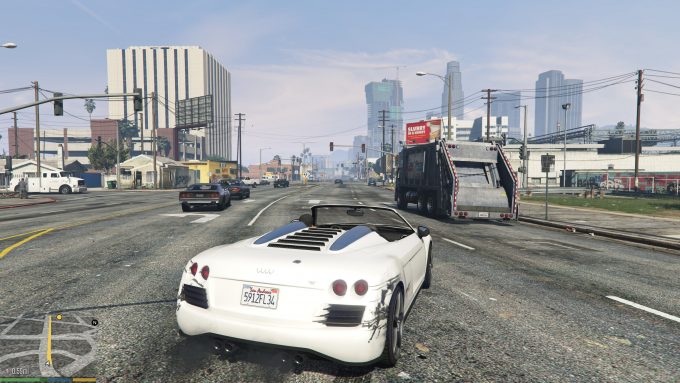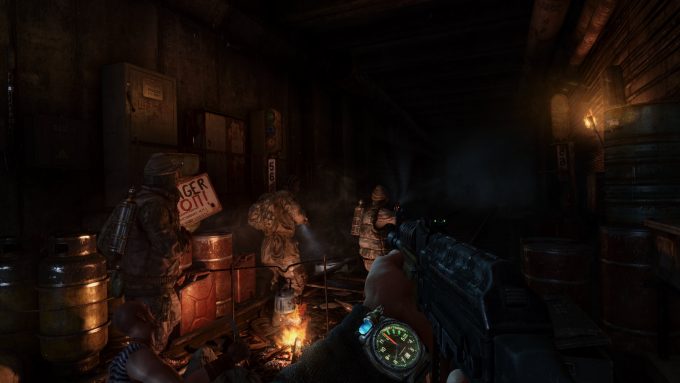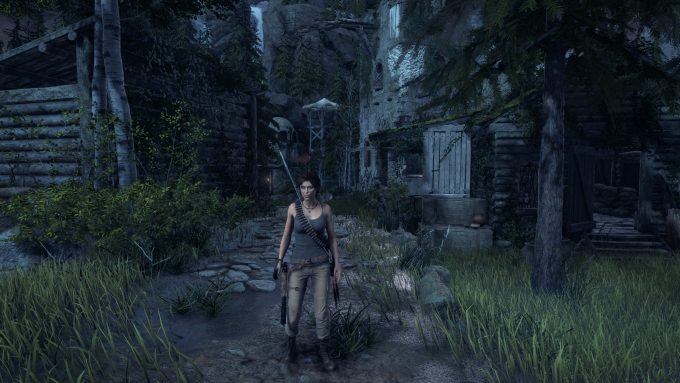- Qualcomm Launches Snapdragon 4 Gen 2 Mobile Platform
- AMD Launches Ryzen PRO 7000 Series Mobile & Desktop Platform
- Intel Launches Sleek Single-Slot Arc Pro A60 Workstation Graphics Card
- NVIDIA Announces Latest Ada Lovelace Additions: GeForce RTX 4060 Ti & RTX 4060
- Maxon Redshift With AMD Radeon GPU Rendering Support Now Available
AMD’s Polaris Has Landed: A Look At The $200 Radeon RX 480

The moment many PC gaming enthusiasts have been waiting for is here: AMD’s first Polaris based GPU has arrived. Much of what makes the Radeon RX 480 an alluring card isn’t a secret, as AMD itself has been talking about it quite extensively, so let’s just get right down to business: what can AMD’s latest $200 Radeon muster?
Page 3 – Tests: Grand Theft Auto V, Metro Last Light & Rise Of The Tomb Raider
Grand Theft Auto V
Does a game like this even need an introduction? Any Grand Theft Auto game on the PC is a ‘console port’, proven by the fact that it always comes to the PC long after the consoles, but Rockstar has at least done PC gamers a favor here by offering them an almost overwhelming number of graphical options to fine-tune, helping to make it suitable for benchmarking, especially at high resolutions.
Testing: The mission Repossession is chosen for testing here, with the benchmark starting as soon as our character makes his way to an unsuspecting car. The benchmark ends after a not-so-leisurely drive to a parking garage, right before a cutscene kicks in.
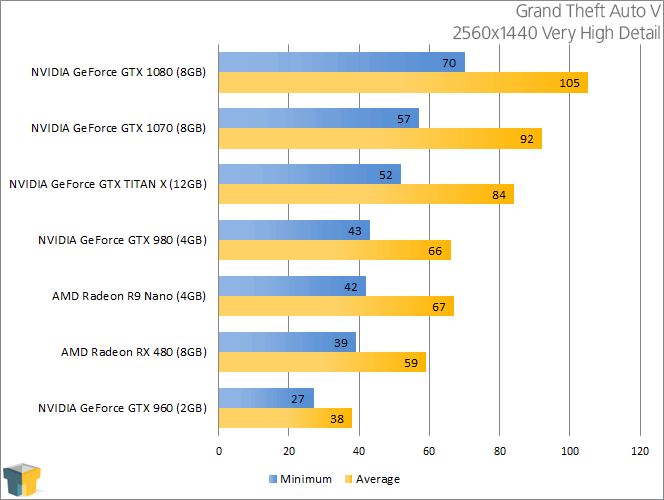
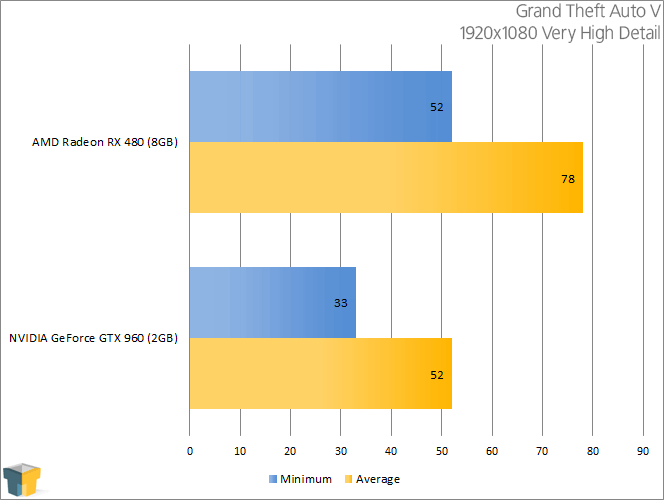
The RX 480 is proving to be quite the competitor. GTA V isn’t the most graphically intensive game out there, but it sure does have a lot of cool things to look at in its vast world. At both 1080p and 1440p, the RX 480 holds up very well. And this is at max detail!
Metro Last Light Redux
Like a couple of other games in our stable, Metro Last Light might seem like an odd choice give its age. After all, the original version of the game came out in 2013, and its Redux version came out in late 2014. None of that matters, though, as the game is about as hardcore as it can get when it comes to GPU punishment.
Testing: The game’s built-in timedemo is used for testing here, which lasts 2m 40s. While the game can spit out its own results file, it’s horribly inaccurate, so Fraps is still used here.
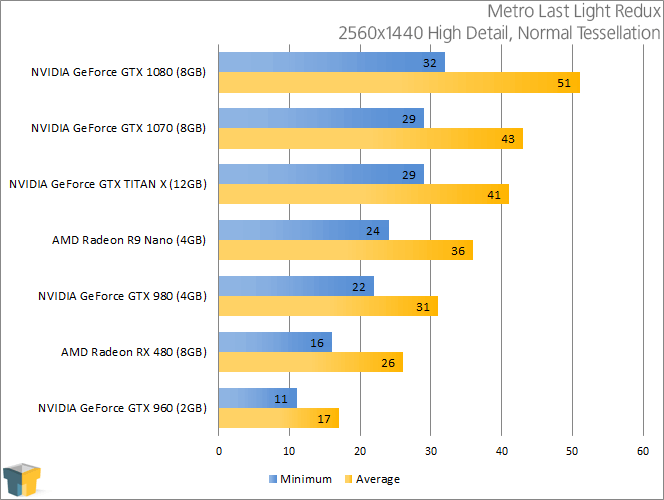
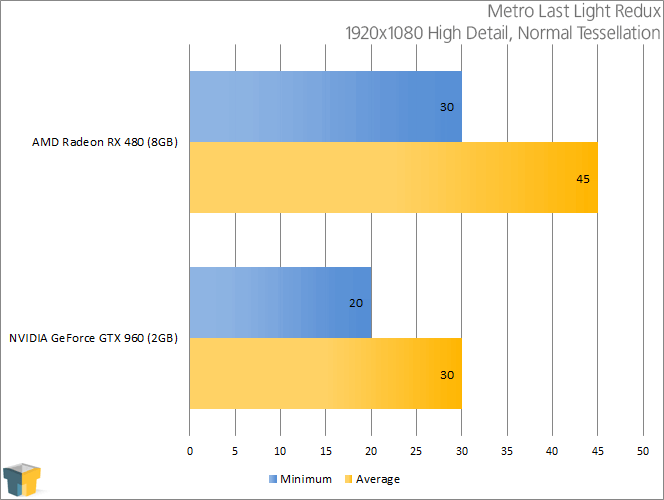
When a card like the GTX 1080 can’t even break much past 50 FPS at 1440p, it’s clear that I pushed the settings far too high with this one. But, as I use it as a timedemo, it’s still appropriate enough to compare GPUs. In this case, the RX 480 continues delivering solid performance, especially in comparison to last year’s high-end R9 Nano.
Rise Of The Tomb Raider
Lara Croft has sure come a long way. The latest Tomb Raider iteration becomes one of the first titles on the market to support DirectX 12, but even without it, the game looks phenomenal at high detail settings (as the below screenshot can attest).
Testing: Geothermal Valley is the location chosen for testing with this title, as it features a lot shadows and a ton of foliage. From the start of our saved game, we merely walk down a fixed path for just over a minute and stop the benchmark once we reach a broken down bridge (the shot below is from the benchmarked area).
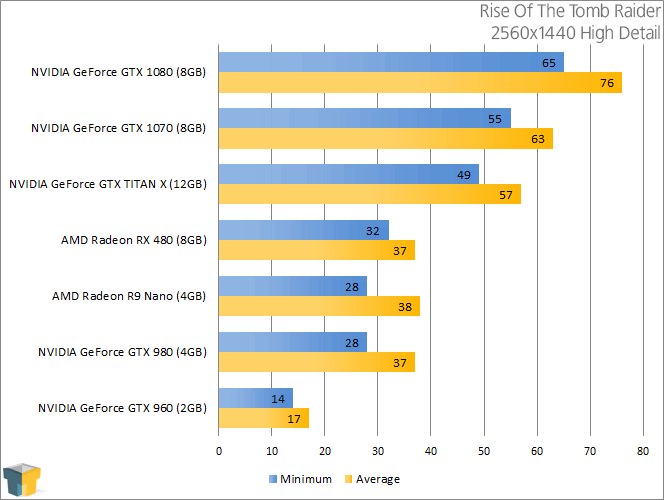
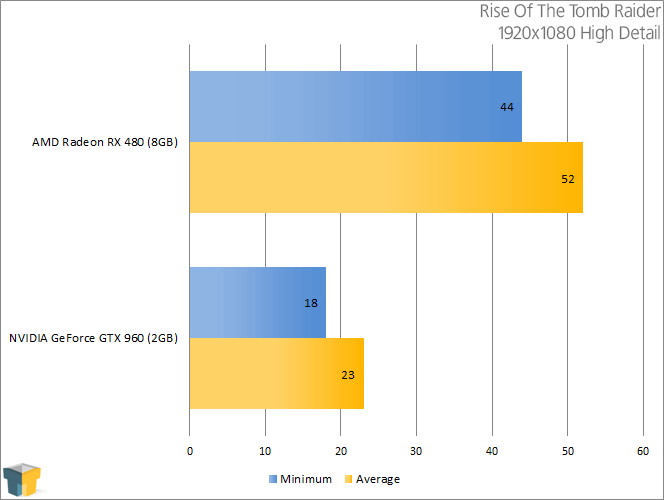
I mentioned on a previous page that I regretted testing with the GTX 960 because of its limited 2GB framebuffer, but I admit that it took me a while to even realize that I was lacking 2GB. It was with RotTR that I clued into the issue, as it ran so slow that I almost decided to drop the result. The performance deltas between the RX 480 and GTX 960 were sizeable before, but this is outright domination.
Do you want a GPU with less than 4GB of VRAM in 2016? Nope! Don’t even think about it.
Support our efforts! With ad revenue at an all-time low for written websites, we're relying more than ever on reader support to help us continue putting so much effort into this type of content. You can support us by becoming a Patron, or by using our Amazon shopping affiliate links listed through our articles. Thanks for your support!




